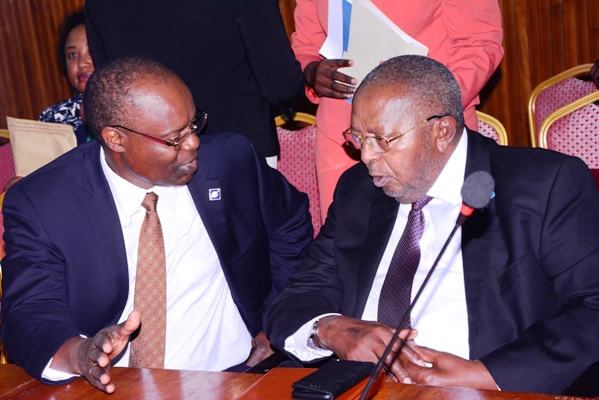The released Parliamentary Committee of Commissions, Statutory Authorities and State Enterprises (COSASE) report on the controversial closure and sale of seven defunct banks by Bank of Uganda (BoU) has recommended that the Central Bank pays billions of money to some of the bank owners for causing them financial loss.
The investigations followed the special audit report by the Auditor General that raised a number of queries in the manner the banks were closed and sold.
The seven banks in question include Teffe Bank, International Credit Bank Limited, Greenland Bank, Co-operative Bank, National Bank of Commerce (NBC), Global Trust Bank and Crane Bank Limited.
The report was presented before Parliament on Thursday evening and will be debated on Tuesday next week. It remains to be seen whether all the recommendations of the report will be adopted by Parliament.
The report for example says that the decision by BoU to transfer Shs570.38bn of Crane Bank Limited bad loan book was illegal.
It adds that in the absence of a proper valuation of all assets and liabilities of Crane Bank, BoU contravened section 95 (3) of the Financial Institutions Act (FIA), 2004 which requires the Central Bank to appoint auditors on assumption of management of a distressed bank as soon as possible.
In numerous cases, BoU has been appointing auditors after the sale, says the report.
“…The inevitable conclusion therefore, is that BoU did not know the exact assets and liabilities it was disposing of.
The reliance by the Central Bank on the due diligence undertaken by an interested party and eventual purchaser to purport to determine the value of assets and liabilities was imprudent, and an abdication of statutory responsibility enshrined in section 95 (3) of the FIA, 20O4 which requires determining the value of asset on the present value basis using a realistic discount rate,” reads the report.
The report adds that a scrutiny of the DFCU bid reveals that the differed cash consideration of up to Shs200bn based on net recoveries on fully provisioned nonperforming assets was the only consideration.
“Given the fact that the Shs200bn differed cash consideration was to be paid from the recoveries from the bad book estimated by dfcu in its bid (of 20th December 2016) to be in the region of Shs500bn was fully provisioned by CBL, the only prudential decision would have been to treat the bad book like in the case of GTB and NBC. Secondly, whereas the outstanding liability owed to BoU by CBL was Shs478bn, DFCU only assumed liability to the extent of Shs200bn whose value was to be recovered from the bad book. This, in the committee’s considered opinion resulted in a financial disadvantage to both BoU and CBL,” reads the report.
The report explains that by conducting the sale in a casual and informal manner, deviating from the basic principles enshrined in FIA and acting in a manner incongruous with the best interests of all concerned, BoU acted high handedly.
“For example, one wonders how, without minutes and records, the BoU management a report that they used to brief the Board,” says the report.
In its recommendations, the report reads: “The committee finds that BoU’s failure to observe principles of financial prudence and in the course breaching their statutory duties provided under the FIA thereby financially disadvantaging CBL, it should make good the loss occasioned to the commerciality fair extent of the value of the Bad Book.”
It adds: “BoU having failed to value the assets and liabilities of GTB, NBC and CBL and considering the lapse of time and impossibility in revaluation of assets should address the probable financial loss occasioned. BoU officials who failed to properly execute their duties in accordance with the law should be held responsible for their commissions and/or omissions.”
It should be noted that while appearing before COSASE probe recently, Sudhir Ruparelia, the founder and key shareholder of defunct Crane Bank said his bank was closed illegally and demanded that BoU pays U$23.3 million (Shs85.4bn) of shareholders capital at the closure of the bank.





